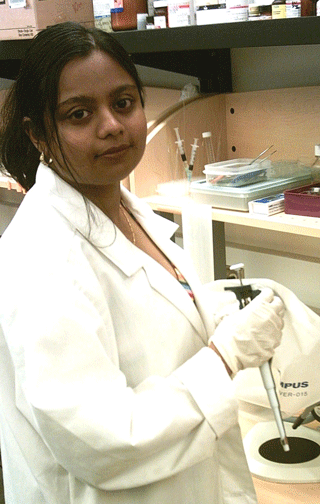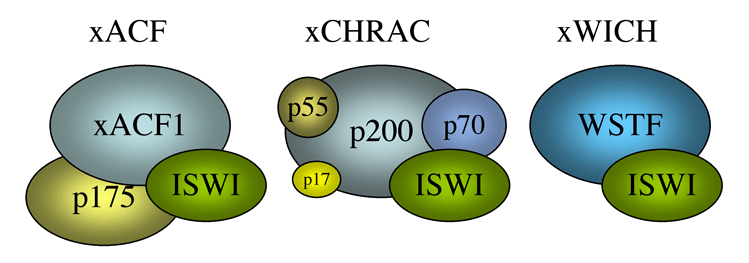
Imitation Switch (ISWI) is a member of the SWI2/SNF2 superfamily of ATP-dependent chromatin remodelers. Twenty different ISWI complexes have been identified so far in yeast, Drosophila, Xenopus and mammals. Three ISWI-containing complexes, WICH, ACF and CHRAC, have been characterized in Xenopus. Loss of ISWI function in Xenopus embryos results in severe defects in neural and eye development, including loss of retinal differentiation and formation of cataracts. We have begun to dissect the contributions of individual ISWI-dependent complexes to development, by using in situ hybridization and antisense morpholino knockdowns against subunits unique to different ISWI-containing complexes. Here I have investigated the WICH complex in Xenopus and have targeted the WSTF subunit. Whole mount in situ hybridization shows WSTF localized in the neural tissue including eye, brain, branchial arches and neural tube/ spinal cord. Injection of antisense morpholino oligonucleotides into fertilized eggs leads to misregulation and aberrant expression of genes involved in neural patterning and development, such as BMP4 and Sonic hedgehog (Shh). Whole mount in situ hybridization shows mislocalization of BMP4 in the probable deformed neural tube of WSTF knockdowns. All these data suggest that WSTF is critical for neural development.
